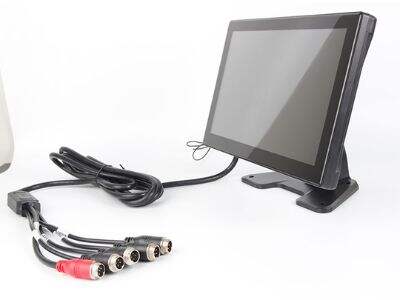Water level sensors are very helpful in making plants grow big and healthy. They assist farmers in deciding when to water to give their crop the right amount of water. This is really important because plants can get sick if they have too much or too little water., we are going to tell you how water level sensors look after plants to make sure they are all jolly and not feeling poorly.
How Water Level Sensors Benefit Irrigation Systems
Irrigation systems are like wizardly sprinklers that empower one wizard to water all his plants on a farm. Farmers can rely on water level sensors to ensure their irrigation system knows when to start and stop. This way, plants receive the specific amount of water they need. They are water level sensors, little helpers to ensure the plants are always happy and life is never thirsty.
How Water Level Sensors Can Maximize Your Crop Growth
If plants have the correct amount of water, they will grow large and strong. Water level sensors aid farmers in understanding when to water their crops, so they can produce a ton of delicious fruits and veggies. And with water level sensors, farmers can help insure each plants gets exactly what it needs to help it grow to its fullest potential. So the plants can be well and healthy, and the farmers can do well and successfully harvest.”
The Advantages Of An Automatic Irrigation System
So IRRIGATION SYSTEMS are cool machines that help water all the plants on a farm so the farmer doesn’t have to do so by hand. They rely on water-level sensors to know when to turn on and off, and ensure that the plants receive just enough water. It saves farmers a lot of time, and it helps them better care for their plants. Thanks to automatic irrigation systems, farmers can grow more crops, have more successful harvests.
Smarter Weir:An improved version of Outflow weir For Automatic Water Level Monitoring and Controlling for irrigation.
Water level sensors make it easier to manage irrigation systems which can be a pain in the butt to do by hand at times. These sensors help farmers understand precisely when and how much to water their crops. That way, farmers will be able to conserve water and make the most of every drop. Using water level sensors, farmers can also monitor how much water their plants are actually receiving, and make adjustments as necessary. Designers With water level sensors, farmers will act like the professional irrigation system managers.

 EN
EN
 AR
AR
 HR
HR
 CS
CS
 DA
DA
 NL
NL
 FI
FI
 FR
FR
 DE
DE
 EL
EL
 IT
IT
 JA
JA
 KO
KO
 NO
NO
 PL
PL
 PT
PT
 RO
RO
 RU
RU
 ES
ES
 SV
SV
 IW
IW
 ID
ID
 LV
LV
 LT
LT
 SR
SR
 SK
SK
 SL
SL
 UK
UK
 SQ
SQ
 ET
ET
 HU
HU
 TH
TH
 TR
TR
 FA
FA
 AF
AF
 MK
MK
 KA
KA
 UR
UR
 BN
BN
